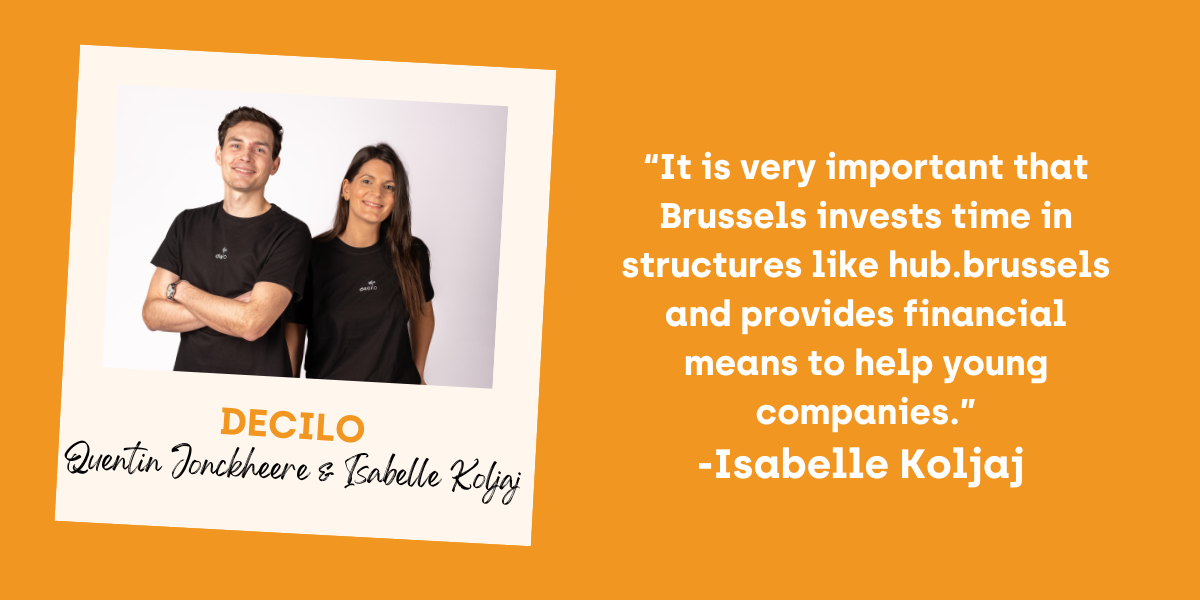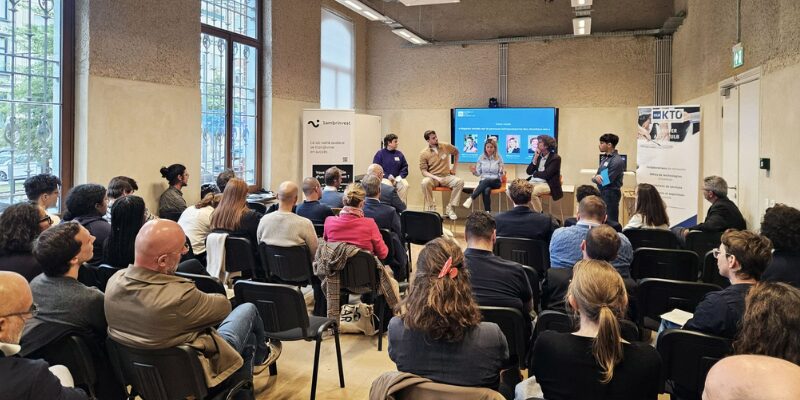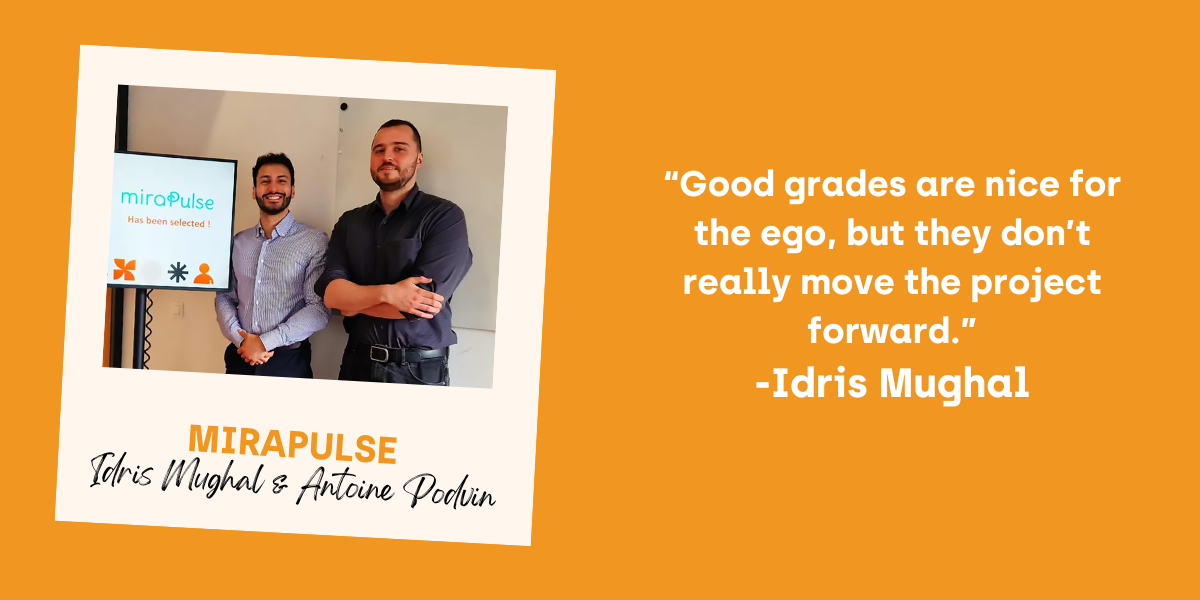ALIFE is a group of health-related projects driven by lifetech, the health cluster of hub.brussels (the Brussels Agency for Entrepreneurship). The aim is to stimulate collaboration between private, public and university players, in order to limit the risks involved in developing innovative solutions, and to accelerate their time-to-market for the benefit of patients and healthcare professionals.
Since 2016, lifetech has put in place a series of initiatives whose impact on the local economic fabric is clearly visible when we take stock: job creation, launch of new companies, strengthening of public/private cooperation, stimulation of a culture of innovation in the Region’s hospitals and healthcare structures – starting with the University Hospital of Brussels (H.U.B.), strengthening of international links, positioning of Brussels in the cutting-edge healthcare landscape.
Driving change in the healthcare sector
Closely attuned to the concerns of Brussels’ economic players, lifetech submitted the ALIFE project to the 2014-2020 Operational Program (OP) of the European Regional Development Fund (ERDF) with one ambition: to create an inclusive healthcare sector in Brussels, by bringing together entrepreneurs, healthcare professionals and patients.
“The ERDF is a fund with a territorial development vocation, and this development includes support for economic players,” explains Quentin Richard, First Attaché at the ERDF Directorate. “In the name of support for SMEs and innovation, two of the priorities of the 2014-2020 OP, we were able to subsidize healthcare, which is one of the 5 priority sectors of activity in RBC.” ALIFE was one of the sixty or so projects selected for funding, to the tune of €2.58 million. “The government felt that it would provide the healthcare sector with global coordination between companies and players in the sector, while taking into account an inclusive approach to healthcare. (…) It was an interesting development.”
The facets of ALIFE: decompartmentalizing, supporting, disseminating
“These funds are there for projects that could not be carried out or would be less ambitious if they were not supported, and that’s what ALIFE has done: something new, groping and evolving its implementation because certain aspects didn’t go as planned,” explains Evi Cornelis, ERDF Directorate Manager at SPRB Brussels International.
This vote of confidence, in the form of funding and regular progress monitoring, has enabled the lifetech cluster to launch a dozen large-scale initiatives, of which the following are a few emblematic examples.
- MedTech Accelerator® (since 2016)
The role of the MedTech Accelerator® is to help young companies ask the right questions at key stages in the development of a business plan, and thus accelerate the time-to-market of healthcare innovations. This program supports startups developing both connected and unconnected medical devices. After 8 editions, the track record is impressive: 64 solutions supported, including 20 active on the market, 13 at the pre-sales stage and already 125 jobs created in Brussels!
The decision was taken to perpetuate the gas pedal, which is now financially supported by the RBC. This success places lifetech at the forefront of support and launch for high-potential projects, fostering collaboration between local players.
- Connect2BHN (2017-2020)
This project has enabled 10 companies to develop a connector between their healthcare applications and the Réseau Santé Bruxellois, making patient data accessible to doctors and facilitating their sharing for better follow-up.
- Economic study of the regional healthcare sector (2018-2020)
Conducted in 2018 and updated in 2020 with the help of EY and Inoopa, the study provides an overview of industrial activity in the healthcare sector in RBC and its potential. It provided the cluster with essential information to optimally position its activities, and offered member-companies a detailed view of their market and its evolution.
- Prevention Project (since 2021)
In the wake of the health crisis, ALIFE’s final set of actions focused on prevention.
The Prevention project aims to facilitate the testing, validation and adoption of primary, secondary and tertiary prevention practices. Innovation Cafés, Prevention Days, collaborations and international meetings – in all, almost 1,000 participants lent their voices, ideas, experience and enthusiasm to events bringing together all the different players in the Brussels healthcare sector (hospitals, startups, academics, politicians, associations, patients, etc.). Over and above the relationships forged, the partnerships entered into and the synergies generated by these exchanges, we’d like to highlight the bonds of trust forged between hospitals and companies. Ties that are growing stronger every day between two worlds that until now have tended to operate in silos.
- CIMH project (since 2021)
A pioneering project in Brussels project (Centre d’CIMHInnovation Médicale en Hôpital) was born out of a desire to develop a culture of innovation in hospitals, as well as an integrated innovation process based on the expression of needs by healthcare staff. Value-driven solutions for caregivers and patients are then sought in collaboration with startups.
The CIMH project and its pilot on post esophageal surgery monitoring will come to an end in the summer of 2024 at H.U.B. This first trial, which is already attracting emulation, will be complemented by the broadcasting of 10 inspiring videos filmed in 4 countries and the publication of a best practice white paper dedicated to hospitals and companies.
“In Brussels, the healthcare sector stands out for its high indicator values and growing entrepreneurial and employment dynamics. So it’s only natural that hub.brussels should develop projects that support its deployment, especially as these generate direct spin-offs for the people of Brussels. This sector is one of the biggest providers of jobs in our region.
It’s up to us to support these players so that this remains the case, while helping to ensure that healthcare remains high-quality and accessible, thanks to innovation and contacts between practitioners and healthcare entrepreneurs,” explains Isabelle Grippa, CEO of hub.brussels.
Impact beyond ambition
ALIFE integrates Brussels into an international web of shared inspirations and successes in thinking about the evolution of healthcare systems. Events have been held in Belgium, Sweden and France, enabling players in the entrepreneurial healthcare ecosystem from different countries to exchange ideas on prevention, acceleration and innovation.
“What I find very successful is that they really created a whole network. It wasn’t just a one-off help for startups wanting to get off the ground, but a long-term effort that continues once the program is over. It’s a project that didn’t limit itself to its known partners, but sought to reach out broadly to the entire public in the sector, to study and understand their needs, to make the link with the business fabric, and so on. It’s a complete and lasting result, with lots of networking, partnerships and long-term contacts,” concludes Evi Cornelis.
The funds granted by the ERDF and the Region will have enabled us to design, launch and support ALIFE, giving rise to initiatives that are vital to the capital’s long-term economic development.
Nearly 300 million euros (including 121 million from the ERDF) will be available for the 2021-2027 program, which has a number of specific objectives ranging from inclusivity to zero-carbon and enhanced competitiveness and digitalization (see program details here: https://feder.brussels/programmation-2021-2027/pour-tout-comprendre-de-la-nouvelle-programmation-2021-2027/ ).





